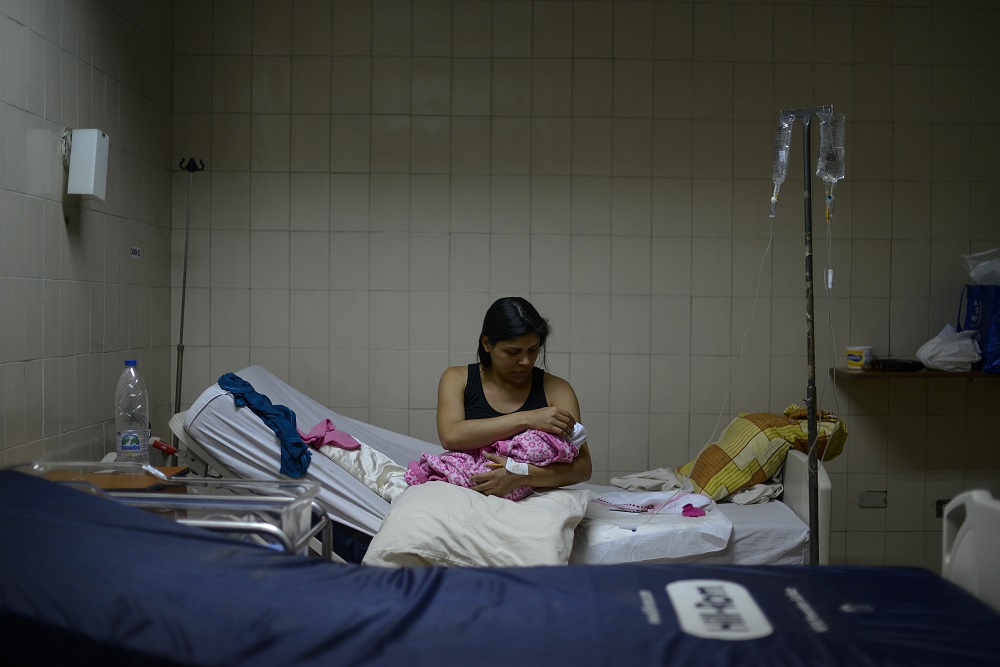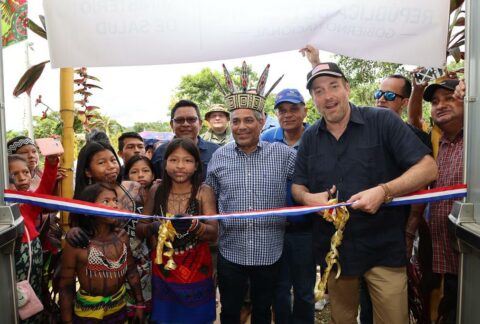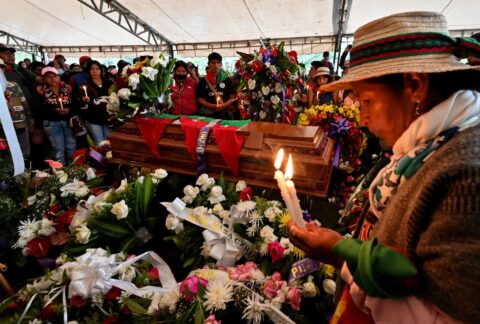Among the areas where the hospital crisis is particularly notorious in Venezuela are maternity wards. Giving birth in this country puts the lives of women and newborns at risk.
The Nicolás Maduro regime is not disclosing childbirth mortality rates, but several nongovernmental organizations, such as Doctors United of Venezuela, have reported multiple health care problems in hospitals.

Doctor Jaime Lorenzo, executive director of Doctors United of Venezuela, told Diálogo that women are at risk because the health care system does not provide prenatal checkups for a safe pregnancy, and some women arrive ready to give birth without any previous examination.
“We’ve had this problem for a long time since there are no prenatal checkups, which is the only way to detect complications before childbirth,” said Lorenzo. “We receive a large number of patients with problems, such as women with hypertension, malnutrition, diabetes, or sexually transmitted diseases; this elevates drastically the risks during childbirth.”
Another life-threatening problem for Venezuelan women in maternity wards is the scarcity of health care supplies, everything from basic supplies to assist deliveries to even cleaning supplies, which exposes women to serious infections.
José Ángel Chavero, a Venezuelan pediatrician and neonatologist in Bolívar state, has witnessed the situation patients experience in the country’s maternity wards, especially when they have complications during delivery.
“Patients must provide the C-section kit in the [Bolívar] state’s maternity wards; there are no blood banks or intensive care,” Chavero told Diálogo. “Any high-risk pregnancy must be referred to other hospitals, because there is no capacity for care.”
“Some hospitals have reported that they do not have any sutures to repair tearing during delivery or C-sections. Several hospitals are even asking women to bring the medical supplies themselves,” Lorenzo added. “Hospitals also lack supplies that aren’t for direct patient care, but for cleaning; they lack water and other products, like chlorine. The risk of infection is high.”
The situation is even more serious in small town hospitals. According to the specialists interviewed, women face transportation issues, because supplies for ambulances are lacking.
“The problem is general, but it’s always worse in obstetric centers located far from state capitals, because there is also a shortage of gasoline and spare parts for ambulances to make transfers,” Lorenzo said.
Maternity wards are also experiencing a shortage of specialists, just like the rest of the Venezuelan hospital system. Many professionals are leaving the country due to the economic crisis the regime has caused. About half of the country’s doctors, some 30,000 professionals, fled Venezuela in 2019, Douglas León Natera, head of the Venezuelan Medical Federation, told the press.
“The number of childbirth beds was in decline as maternity wards were closing, and the big problem is the lack of human resources. Neonatologists, perinatologists, and anesthesiologists are some of the doctors who have migrated in large numbers,” Lorenzo said. “For example, Caricuao Children’s Hospital in Caracas has anesthesiologists only twice a week, and women who need a C-section or anesthesia during childbirth have to be transferred to another hospital.”
For his part, Maduro hides the problems of the health care system. On March 4, he encouraged women via YouTube to “give birth, give birth,” adding that all women should have “six children, all of them.”









